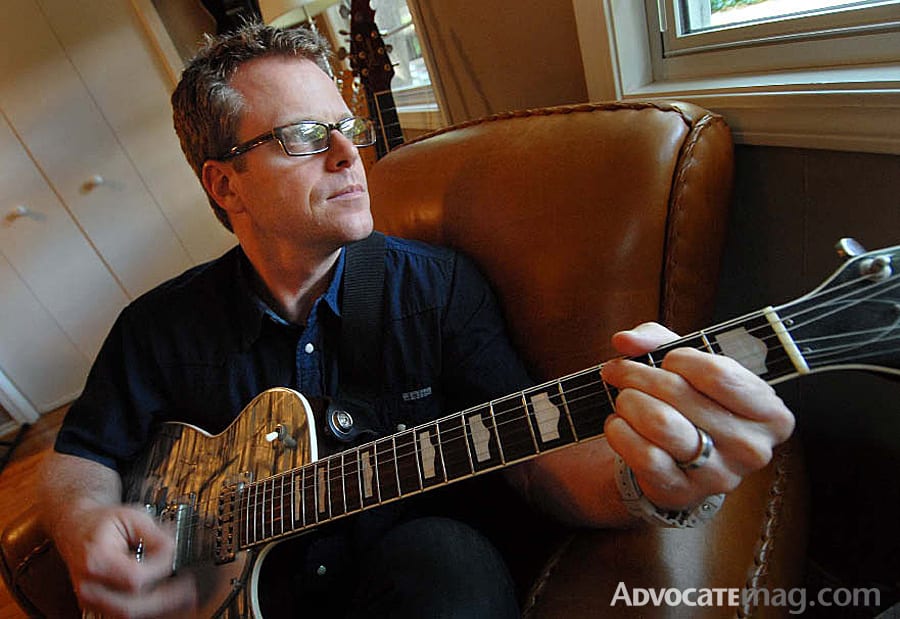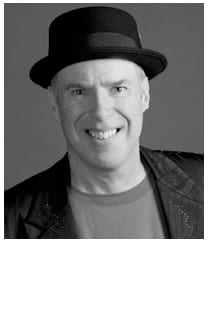The following interviews were conducted by SMU student Rodman Steele.
Cary Pierce – Founding member of Jackopierce, musician 
Did you have a business plan when you started Jackopierce?
We Probably had a business plan for our first record… One page that said hey – what are we doing, what are we using our money for. I think we did that once because some guy wanted to ‘invest’ in us… I really took the reigns because we were managed by a guy at the time, Brady Wood. He became our manager because he was our social chairman at SMU. He booked us our first gig, and he handled all our early finances. [Brady] had everything in QuickBooks. Jack and I broke up in the end of ’97. We got back together in 2002 and I had become adept at QuickBooks so I started handling all the business stuff. A big shift happened for me when I got an accountant… I had it all in one giant account in Quickbooks, but then my bookkeeper said nuh-huh, you need to set up different companies. Cary Pierce performs solo, has a catalog of songs that have nothing to do with Jackopierce, and Jackopierce is its own company. As simple as it is, its major.
What pieces of advice can you offer to arts entrepreneurs beginning their careers?
I’m a big proponent of not ‘having something to fall back on’. I don’t believe in that language. I went to college for the college experience and Jackopierce was born out of that experience. I literally tried to get out of SMU as soon as possible because we were playing so much. I know its counterintuitive to higher education, but to me college was a phenomenal place to learn how to put my hand out in front of myself. Still to this day, experts will tell you the real true fans are on your mailing list. Like the old school. If you have their email address and they consider themselves a fan, and they are opening your email, that’s gold. They’re out there like crazy.
Do you think business plans are necessary for entrepreneurship?
I know they are not because I don’t operate in that world. I think you have to have a plan. They can take different forms in exercises – what do you want to do, how are you gonna do it, when are you gonna do it, who is going to help, who needs this. It’s a wonderful exercise. If you are raising money, you have to have a plan.
Doug Wright – Broadway Playwright 
Did you have a business plan when you started your business(s)?
No. I was incredibly naive. If I’d known more about the challenges of being a writer for theater and film, I may not have had the courage to pursue it! That said, I wish I’d known more about the freelance life of a writer….how you create a workable budget, how you plan for retirement, how you obtain health insurance and a reliable pension plan. When I became sufficiently successful, I was able to retain a very helpful Business Manager. He established my corporation, which is called Plain Brown Wrapper, and created all the affiliate accounts: checking, money markets, and an IRA. He also hooked me up with investment managers at Morgan Stanley. I now receive my pension and health funds through my union, the Writer’s Guild of America. But I learned all of these financial strategies after I’d been in the profession for a while, flying by the seat of my pants. I wish I’d had a firmer grasp on basic business principles earlier in life.
Do you think business plans are necessary for entrepreneurship?
I think for someone with a sincere and passionate interest in business, they probably are. For a working artist, I think it’s probably even more important to focus on your craft first so that you can ultimately get jobs in a highly competitive field. You need to be a brilliant actor or a stunning painter or a phenomenal musician before you need to learn how to read a spreadsheet or create an investment portfolio. Then – if you start to truly earn a living from your art – it’s time to learn about business strategies.
What pieces of advice can you offer to developing arts entrepreneurs?
I have enormous enthusiasm and respect for people who focus on the business element of the arts: producers, development directors, studio accountants, entertainment attorneys, agents, line producers, and administrators. And I think a business education is vital for these individuals because they are knowingly entering a highly volatile field. I sailed through college and graduate school without ever taking a basic economics course or a single class in business. I’m sure it would’ve helped me immeasurably.
Mark Lewis – Founding member, manager of Rain: a Tribute to The Beatles. 
Did you have a business plan when you started Rain?
No – When Rain got started around 1975, I didn’t even know what a business plan was. Would it have been beneficial to have a business plan when we started? Absolutely. I just plowed forward going by my instincts. The band loved The Beatles. We felt that there was a void in the music scene that we could fill by playing the music that so many people loved, but nobody was performing it true to the record live. At that time, we didn’t view it as a career, it was just a fun way to make living. Better than getting a job!
Do you think business plans are necessary for entrepreneurship?
Yes – I think Rain would have accomplished a lot more, a lot sooner if we had had a business plan from the beginning. As a result of this, I believe a lot of unnecessary mistakes were made. We had no guidebook to follow, and most people I spoke with thought we were out of our minds to be doing what we were doing. There were a lot of young egos to deal with that – On the one hand, they felt that they should be doing their ‘own’ music, but on the other hand, they were going to have to quit if they couldn’t make some money. Some guys (different personnel than have been in the band for the last 35 years I might add) didn’t want to put on costumes (sell out) and didn’t want to perform as a character. My point being, having a solid business plan would have eliminated a lot of anxiety and unnecessary growing pains.
What pieces of advice can you offer to arts entrepreneurs beginning their careers?
I’d say to remember that as a musician you are still in the ‘music business’. Two words. You need to be good at both in order to succeed. I’d also say to follow your instincts, and leave no stone unturned because you never know where something that seems insignificant at the time can lead. Recognize the difference in a ‘gig’ and an opportunity. Gigs happen all the time, opportunities don’t. It’s really easy to miss a great opportunity because you have a chance to play a ‘good paying gig’.
Rodman Steele, who conducted these interviews, is, at the time of writing, a student in the Arts Entrepreneurship program at Southern Methodist University (SMU), Meadows School of the Arts. This series of interviews was conducted as part of the Arts Entrepreneurship capstone class Developing an Arts Venture Plan. The interviews seek to understand if creative entrepreneurs began their endeavors with a plan or not.
— Jim Hart, Director of the Arts Entrepreneurship program, SMU.




